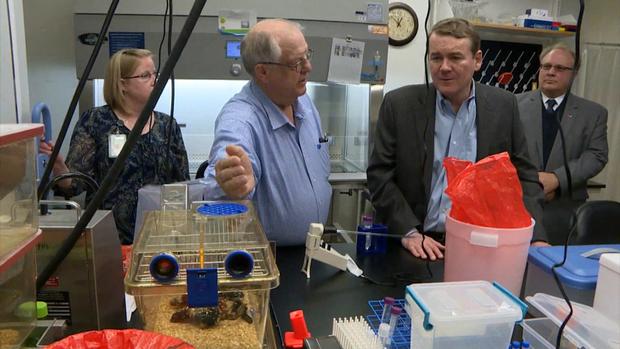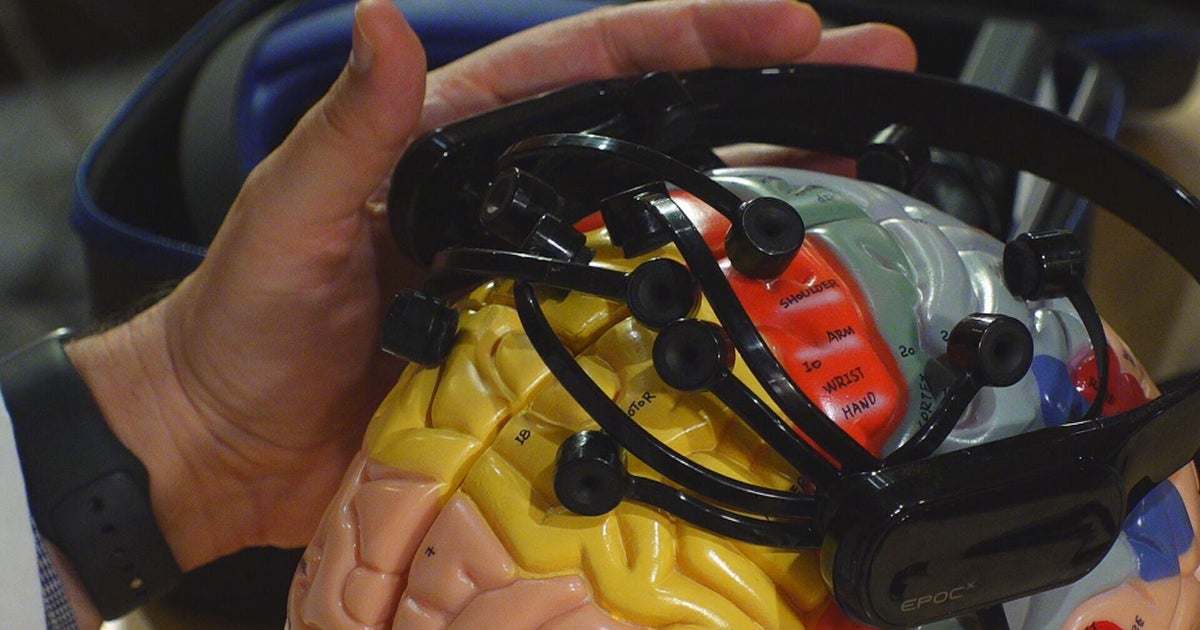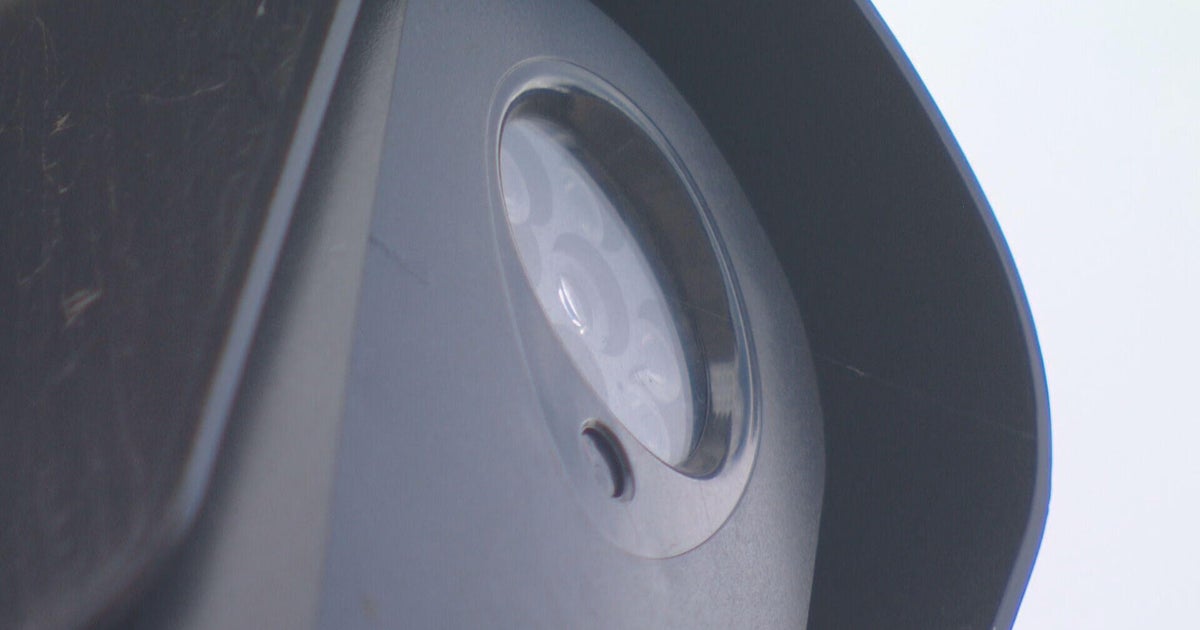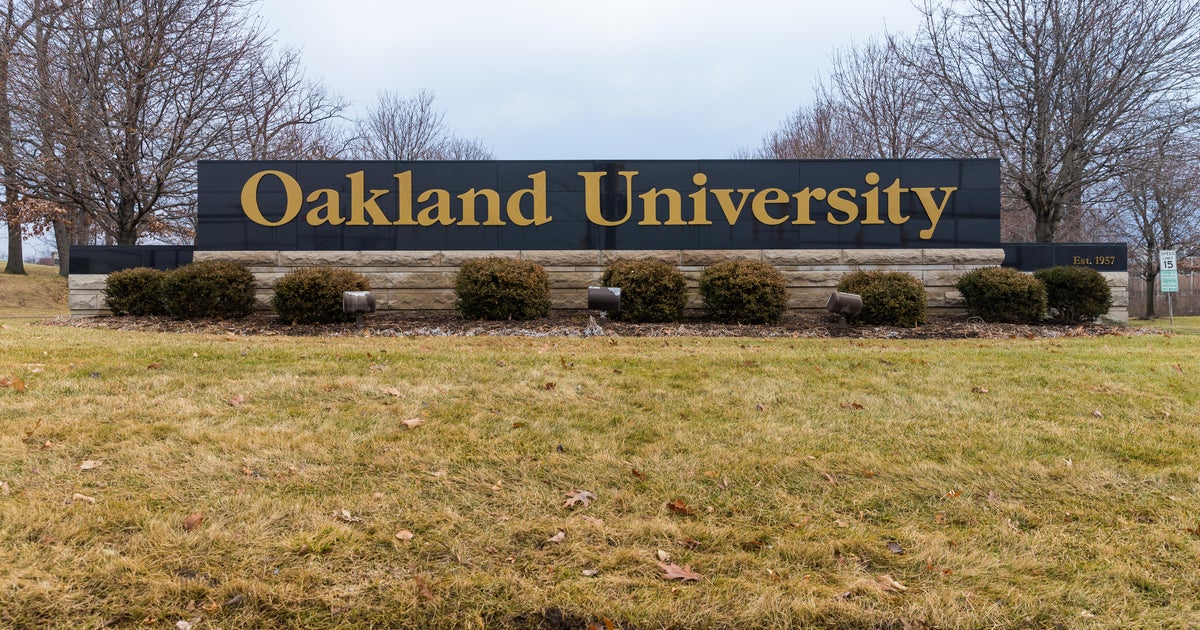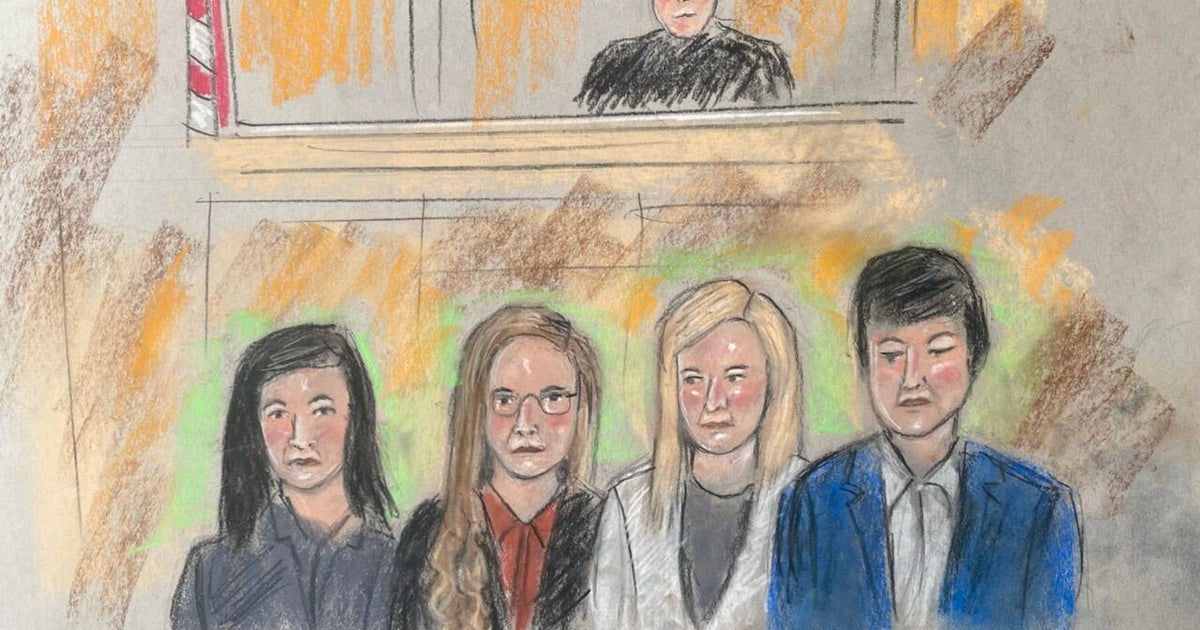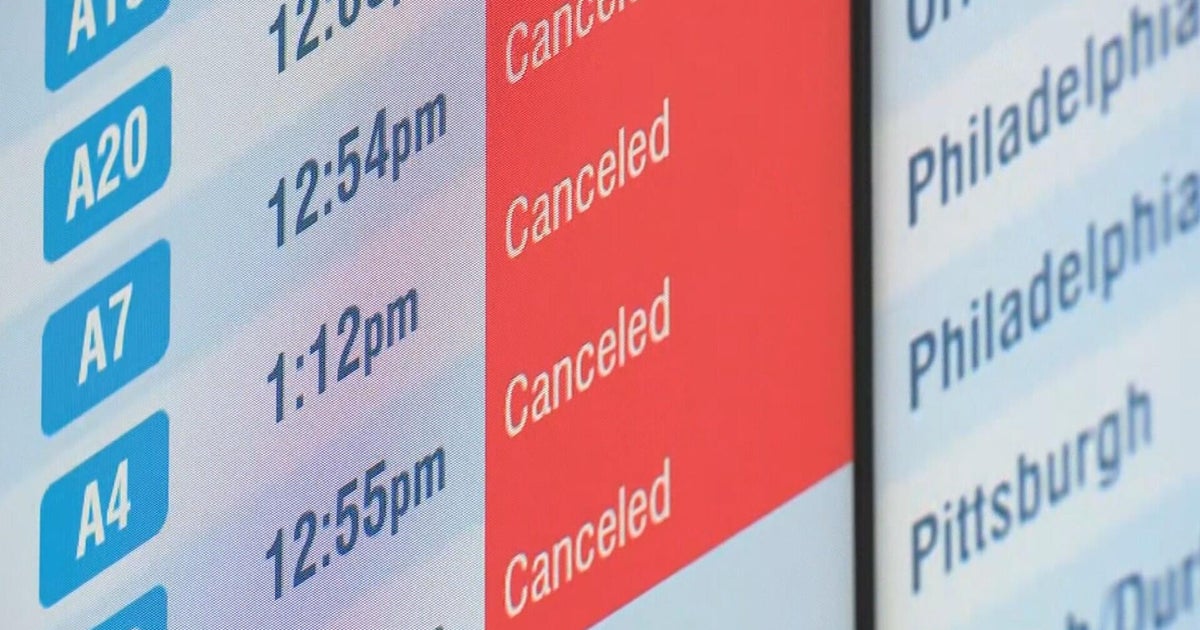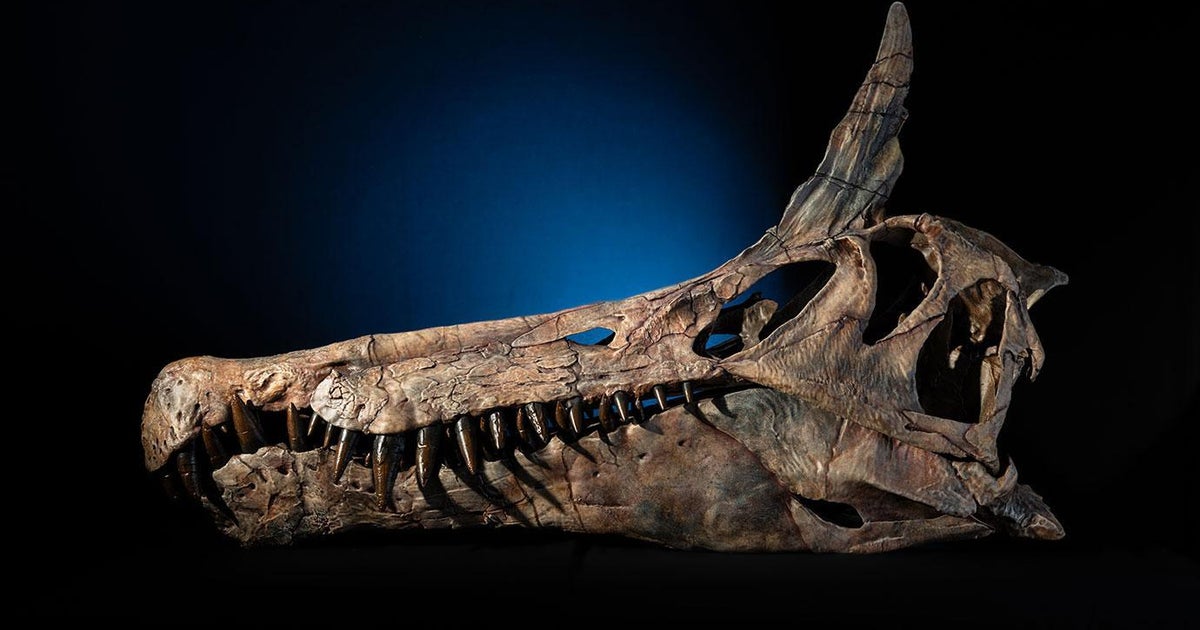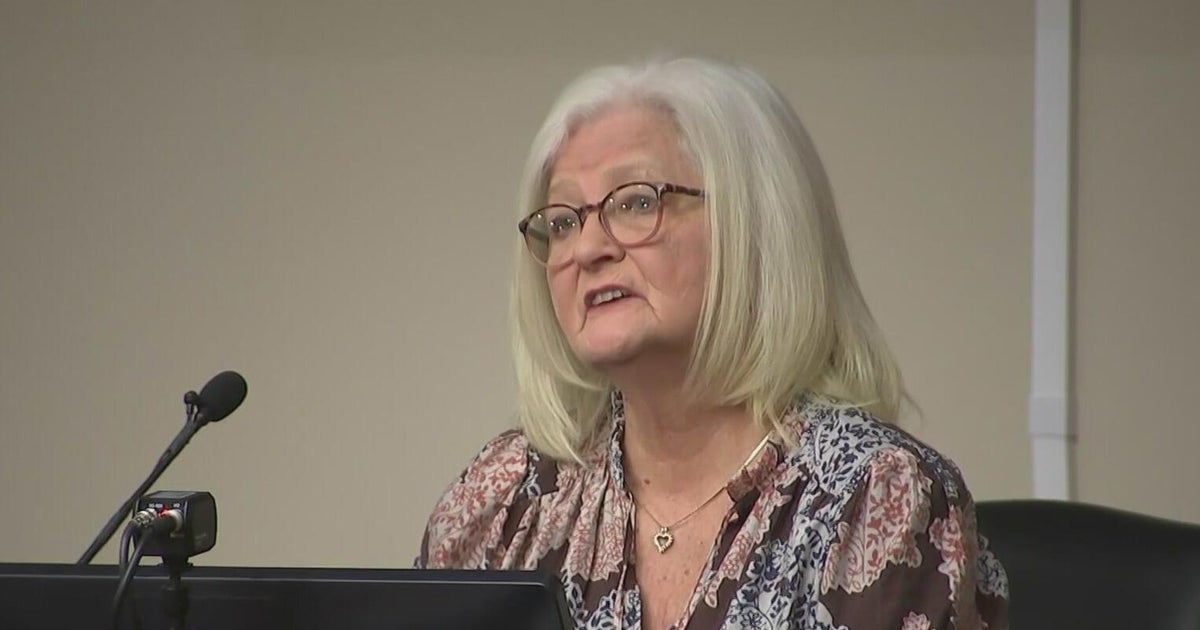Colorado State University Working On A Coronavirus Vaccine
FORT COLLINS, Colo. (CBS4) - Just days after Congress passed an $8 billion spending bill to further combat and research the coronavirus COVID-19, Sen. Michael Bennet visited Colorado State University to see how they are developing a vaccine. While many across the world are doing their best to avoid COVID-19, CSU's researchers are working to grow it.
In a controlled and secure lab at the foothills of CSU, the virus has successfully been duplicated and is currently being researched.
"We have the COVID-19 agent on site. We are growing it," said Raymond Goodrich, Executive Director of CSU's Infectious Disease Research Center.
Goodrich told CBS4 that many of his researchers have dropped previous projects to focus on the COVID-19 outbreak. CSU hopes to contribute enough research to not only better understand how the virus spreads from animals to humans, but also potentially create a vaccine to combat the virus by the end of the year.
"We are applying those resources and capabilities to addressing this emergent problem. Not only for Colorado, but for the United States and the rest of the world as well," Goodrich said.
Goodrich welcomed Bennet to CSU's research facility, west of the main Fort Collins campus, where some of the university's findings thus far were presented. A machine which was once used for bloodwork proved to be successful at working with the COVID-19 cells as well.
"When it comes to this kind of research, CSU is the center of the universe," Bennet said.
Bennet said funding research like that which was coming out of CSU was important, especially as the virus continues to grow.
"This is very serious. There are people who are dying of this," Bennet said. "We need to take this very seriously. But, we shouldn't overreact at the same time."
Although Colorado now has multiple confirmed cases of coronavirus COVID-19, Bennet encouraged those out of state to consider visiting Colorado for vacation, as he believed it is still safe. However, he joked that he spoke with his daughters about reevaluating their intentions of traveling elsewhere for spring break.
Goodrich said that if successful, CSU could have a vaccine prepared for routine human use as soon as a year-and-a-half from now. However, he said that was an ambitious goal. For now, the university is hoping to develop enough information to create a vaccination which would then be used on animals like mice and guinea pigs. Human testing through the CDC wouldn't be possible until almost November at the earliest.
"These are new ideas (and) new concepts that are developed in the minds of students, faculty and staff here that are developed into practical solutions, that can ultimately reach the public in forms that help control the spread of diseases like this," Goodrich said.
"These guys are on the cutting edge of so much scientific research. It is really exciting to know it is right here in Colorado," Bennet said.
